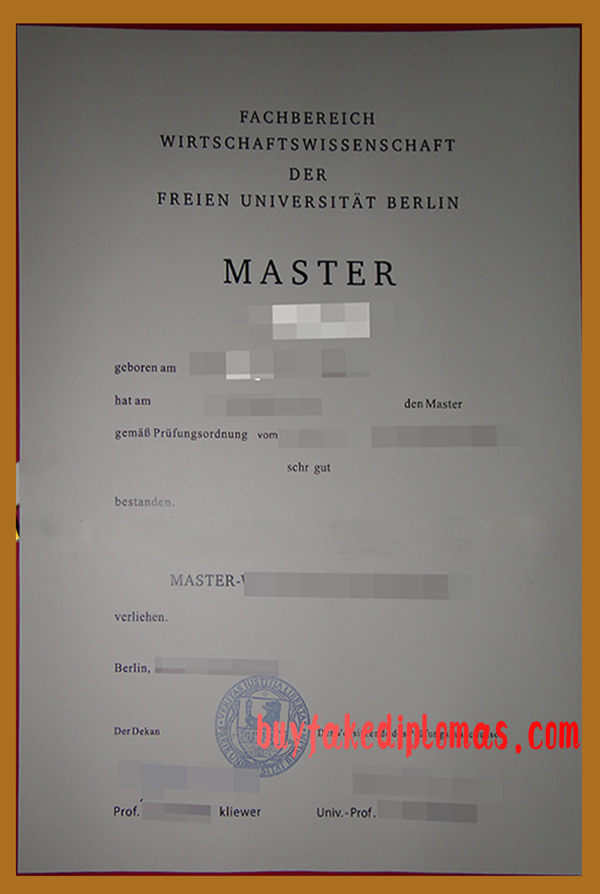We provide the best service at the most favorable price in the market. The original stamps / stickers, perfect and authentic seal and badge samples help you obtain the ideal certificate add our whatsapp: +86 15179517591
Fake University of Berlin Degree

University of Berlin Degree
Universitat zu Berlin is a comprehensive university in Germany. Formerly known as Friedrich Wilhelm University of Berlin, it is located on Linden Street, Berlin. This fake University of Berlin Degree certificate is a copy of the original. Our design team and manufacturing team took the original certificate of University of Berlin Degree as the blueprint, combined with the personal information provided by the customer, and made a perfect copy of this product one by one. Our products show every detail of the original incisively and vividly, including paper size, weight, color, signatures, seals and so on. Our products are highly praised by customers. We also provide customers with customized fake University of Berlin Diploma, fake University of Berlin Transcript and fake certificate based on customers’ suggestions. We are always committed to helping customers who need to enhance their professional qualification competitiveness. With our help, you will get an ideal university diploma. A perfect report card; A beautiful professional qualification certificate can be used to find a decent job, a high salary and an ideal position. Contact us and it will not be a dream.
The University of Berlin was founded in October 1810 as a state-funded co-educational institution of higher learning by Wilhelm von Humboldt, Prussian Minister of education, German academic and educational reformer. It was originally called the Friedrich-Wilhelm-Universitat. It was established with the support of Frederick William III, King of Prussia.
He wants Humboldt University in Berlin to become the “mother of modern universities” (Mutter aller modernen Universitaten). Humboldt believed that the university has dual tasks, one is the search for science, the other is the cultivation of personality and morality. By science he means pure science, namely philosophy. As a social person, self-cultivation is the quality that people should have. It is the result of the all-round development of personality. It has nothing to do with special ability and skill. According to the requirements of pure science, the basic organizing principles of the university are two: loneliness and freedom.
The loneliness of universities means that they should not be influenced by political, economic and social interests, keep a certain distance from them, and emphasize the autonomy of universities in management and academics. It contains three meanings: first, the university should be independent of the government management system of the country, that is, “independent of the organization form of all countries”; Universities should be independent of social and economic life. The purpose of science is to explore pure knowledge and truth, not to meet the actual needs of society; Three, loneliness is an important condition for engaging in learning, university teachers and students should be willing to be lonely, not to be disturbed by any worldly affairs, completely devoted to science.
Freedom has two meanings: external freedom and internal freedom. External freedom is for the state, which focuses on the rights of universities and the responsibilities of the state. Research in universities should be carried out in free conditions in accordance with the inherent requirements of science. Until then, universities, whether in Europe or the United States, followed the tradition of monastic education, focusing on the training of teachers, civil servants or rules, and paying less attention to research.
In Humboldt’s view, freedom and loneliness are interrelated and interdependent, and there is no freedom without loneliness (independence). The whole external organization of the university is based on these two points.
According to Humboldt’s idea, the modern university should be “Universitas litterarum”, where teaching and research are carried out simultaneously in the university, and academic freedom is achieved. The university completely aims at knowledge and scholarship, rather than the cultivation of practical talents. Before that, universities in both Europe and the United States followed the tradition of monastic education, which focused on training teachers, civil servants or aristocrats, and paid little attention to research. Since then, Humboldt’s ideas have spread across Europe and the United States, and many universities have imitated them.
Initial development
